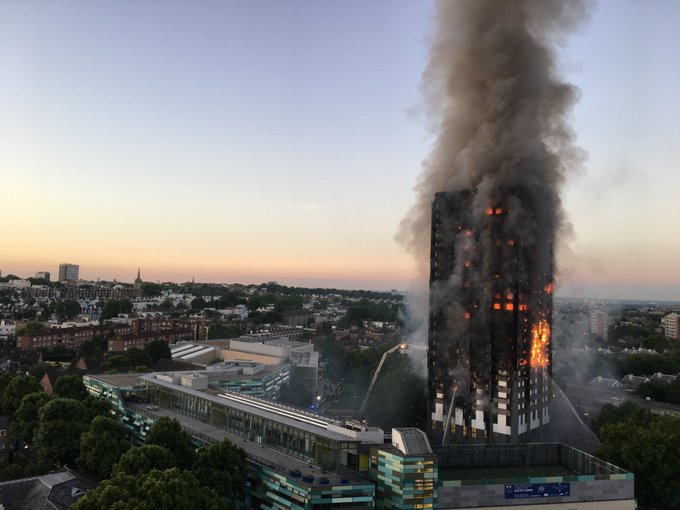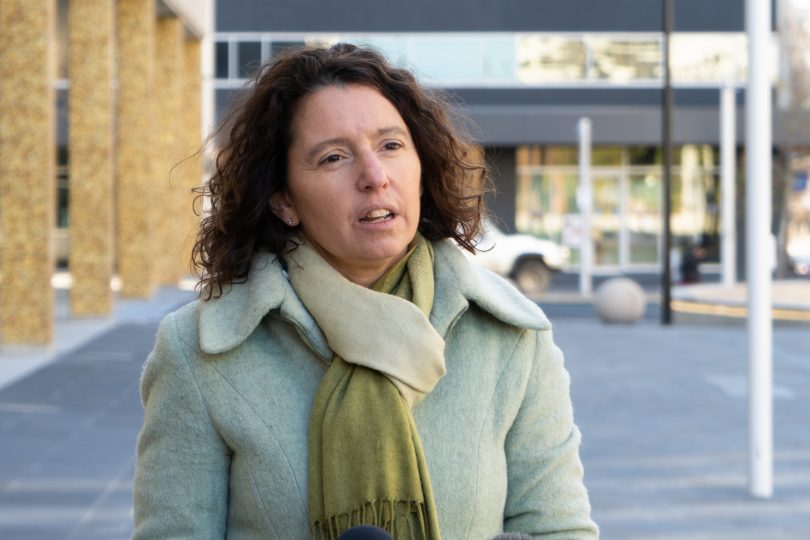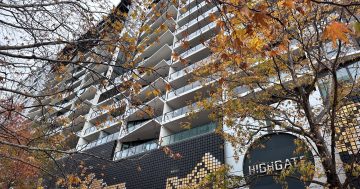
More than 70 people died when flammable cladding exacerbated a fire at Grenfell Tower fire in 2017. Photo: Twitter (@Natalie_Oxford).
The ACT Government has been warned that unsafe cladding could become the Territory’s “second Mr Fluffy” if a full audit is not carried out and more support is not offered for rectification works.
President of the Owner’s Corporation Network, Gary Petherbridge, has raised concerns about the government’s duty of care to around 90 residential apartment buildings which may have combustible cladding, describing government offers of concessional loans as “minuscule” by comparison to the risks.
“The government is the one which certified that these buildings are ready for occupancy … and if they are certifying that they are ready for occupancy and safe, then the government still has some responsibility there,” he said.
Mr Petherbridge called for the full audit in the ACT to identify which buildings are at risk after the government refused his repeated requests to release the list of buildings affected, citing privacy and safety concerns.
Minister for Sustainable Building and Construction Rebecca Vassarotti said it had contacted individuals as part of the program and was working with the owners about managing risk.
Such concerns include the possibility of arson.
“We are talking about people taking matters into their own hands if they know there is a potential risk,” Ms Vassarotti said.

President of the Owner’s Corporation Network Gary Petherbridge has called for more government support. Photo: Dominic Giannini.
Mr Petherbridge’s comment follows revelations that some building owners are being forced to replace cladding to gain insurance.
Owners of private buildings with cladding that may be combustible are responsible for ensuring their building is safe to occupy.
Cladding materials consisting of either aluminium composite panels or expanded polystyrene are potentially combustible and can cause a fire to spread more quickly, which the world saw in 2017 when the Grenfell tower fire killed 72 people.
The ACT Greens pushed for a full audit of buildings that contained the flammable cladding in 2019 but the audit that was subsequently carried out only covered government-owned buildings.
The audit identified 23 at-risk government-owned buildings; 11 of these buildings are currently being rectified under a pilot project which is expected to be completed in September.
Ms Vassarotti made the comments as she announced a new government rebate of up to $20,000 for eligible residential building owners to carry out testing and an assessment on the building’s cladding.
The rebate will cover a maximum of 50 per cent of the assessment and will apply retrospectively in some circumstances to buildings that have already carried out assessments.
The second part of the scheme will offer concessional loans to private owners to help rectify the issue.

Minister for Sustainable Building and Construction Rebecca Vassarotti has announced a new cladding rebate. Photo: Dominic Giannini.
But Mr Petherbridge said the amount was minuscule compared to how much the government taxed the sector through rates and most apartment owners would not be able to cover the remediation costs that follow the assessment.
“When you consider my rates bills, which have been going up 10 to 20 per cent every year, there is plenty of money provided from the strata sector to the government,” he said.
“There are a lot of people that buy into these [apartments] where it is their first place or their last place, and they do not have unlimited finances … to make the rectification works.”
The government originally offered concessional loans for private owners to carry out an assessment but have now changed it to a rebate scheme.
Ms Vassarotti said it was easier and more streamlined to provide assistance through a rebate program.
“The decision was that a rebate scheme is simpler to understand, simpler to administer, and it means that body corporates can get that assistance straight away,” she said.
Ms Vassarotti said the scheme was about having responsible fire safety management in place, as it would for any other product.
“This is an issue that has been known for some time and we have been looking at a range of issues including the national building code to ensure it does minimise the risk moving forward,” she said.
“In the ACT, we have been trying to engage with stakeholders in terms of what the barriers are to address the issue on an individual level, and this is what this scheme is looking at in terms of private apartment buildings.”
The current scheme will not be mandatory for businesses, with Ms Vassarotti saying the government had a good sense of where the buildings were due to the “good relationships it has built with stakeholders”.
Insurance requirements would also help identify affected buildings and mandating the scheme would only have delayed the process, she said.
“If evidence emerges that there is a significant risk and individual buildings are not responding to that, we will have a look at [making the scheme mandatory].”
Mr Petherbridge said the government needed to carry out a full audit of private buildings to identify where cladding poses a safety risk with concerns that owners may not want to conduct an assessment in fear that it would diminish the value of their property.


















